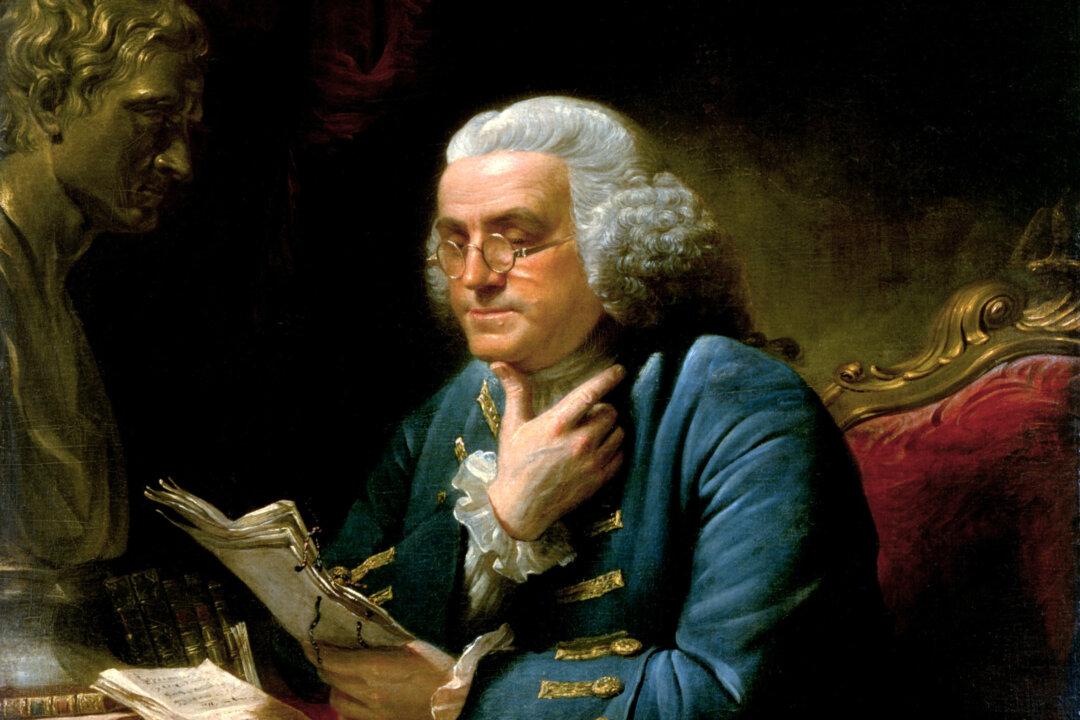Benjamin Franklin’s many achievements as a statesman and scientist grew from his belief in the power of self-improvement. At the age of 20, he began an arduous project of “arriving at moral perfection,” as documented in his autobiography published posthumously in 1791. He was determined to practice 13 virtues that, rotated on a weekly basis, he believed would help him achieve success in life: temperance, silence, order, resolution, frugality, industry, sincerity, justice, moderation, cleanliness, tranquility, chastity, and humility. The 13 virtues could fit into a calendar year neatly, allowing Franklin to cycle through the list four times a year.
As part of his goal of becoming more orderly, he developed a rigorous daily schedule. Franklin found that his “scheme of order” was the most challenging virtue to practice. Being in the printing business required him to have a flexible schedule and “receive people of business at their own hours.” He compared himself to a man who buys an ax and asks the smith to smooth it for him—but, being too busy, concludes, “I think I like a speckled ax best.”





